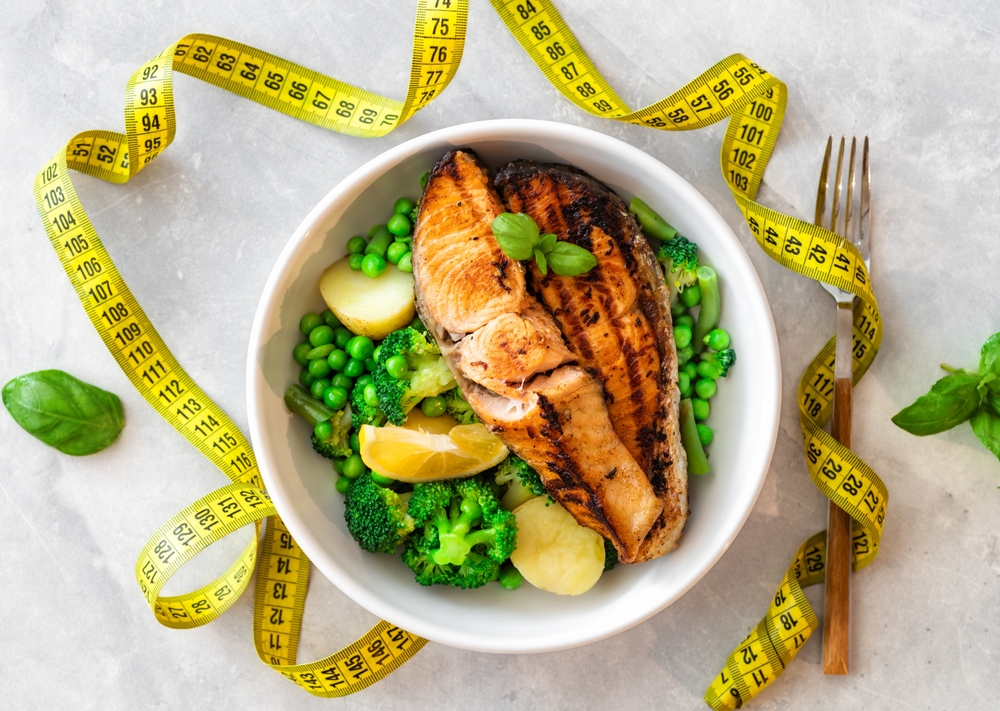Calorie Counting vs Portion Control: Which is More Effective?
Updated May 7, 2023.

Whether it is to improve your appearance, become healthier, or just a desire to feel better physically, weight loss is no easy journey.
Whatever your reasons for wanting to lose weight, you need to be in a calorie deficit to lose those unwanted pounds. This means your body has to burn more calories than you eat.
While your daily physical activities and workouts can support your weight loss goals, a balanced diet is crucial.
Let's explore the concepts of calorie counting and portion control to determine which method is more effective for weight loss.
Calorie Counting
So what is calorie counting? Is counting calories good for weight loss?
It's actually as simple as counting the calories in the food you eat and comparing it to your daily calorie requirements based on your age, sex, and activity levels.
On average, women need about 2,000 calories, while men require 2,500 to 3,000 calories per day. Consuming fewer calories than this number will lead to weight loss.
Calorie counting can be useful for specific fitness goals, such as building muscle, and can be effective for short-term weight loss. However, it takes some mental effort and could lead to unhealthy behaviors. For instance, some people might opt for low-calorie but nutritionally poor foods, resulting in nutritional deficiencies and weakness.
Best for:
Calorie counting is best suited for people aiming to lose weight, as well as bodybuilders, athletes, and those who want to safely and effectively gain muscle. By tracking caloric intake and adjusting it according to specific fitness goals, you can more accurately control your weight and body composition.
Portion Control
Now, what is portion control?
Portion control refers to regulating the amount of food you consume during a meal. By controlling portions, you can receive all the necessary nutrients without overeating.
Eating smaller portions improves digestion and contributes to weight loss or maintaining a healthy weight. Portion control can also help regulate blood sugar levels by reducing carbohydrate intake and increasing protein consumption.
With this approach, no food is off-limits. As long as you manage the amount you eat, you can enjoy a variety of foods.
So is portion control good for weight loss?
The answer is a resounding yes! Portion control is very important for weight loss.
Eat more portions of vegetables and other high-fiber foods, reduce the servings of carbs, and increase your protein intake. Do keep in mind that you should moderate the consumption of fats, even if they are from healthy sources.
Here are some tips for portion control:
- Use smaller plates: Small plates filled with food make you feel as if you are eating a lot.
- Do not pick at leftovers: Serve only what you need on your plate, and once you are done eating, put away the plate.
- Eat until you are 80% full: There is no need to fill your tummy by stuffing yourself. Stop when you feel you are 80% done.
- Ask for half portion when eating out: While ordering at restaurants, ask to serve half portion of the food. You can also split a meal with a friend.
- Pre-portion meals using Tupperware: You can plan ahead and pack preportioned meals in containers. Eat only the planned portion even if you feel like you want more.
Best for:
portion control is ideal for those looking to lose weight and maintain it in the long run. It is also beneficial for people with diabetes, as portion control can help manage blood glucose levels by adjusting the balance of carbohydrates and proteins in their diet. By focusing on portion sizes, you can avoid overeating while still obtaining all the nutrients you need.
» Here's why losing weight after 40 is harder
Choose the Right Method for You
Both calorie counting and portion control can lead to successful weight loss, depending on your preference. However, portion control is generally an easier method for reducing food intake while maintaining a healthy nutrient intake.
Complement your diet with regular exercise, such as TDC's 7-minute workout. This quick, low-impact program utilizes sprint interval training (SIT) and can easily be incorporated into your daily schedule. Requiring no fancy gym equipment, this workout can be done anytime, anywhere, and helps you lose weight, improve cardiovascular fitness, and build strength.





